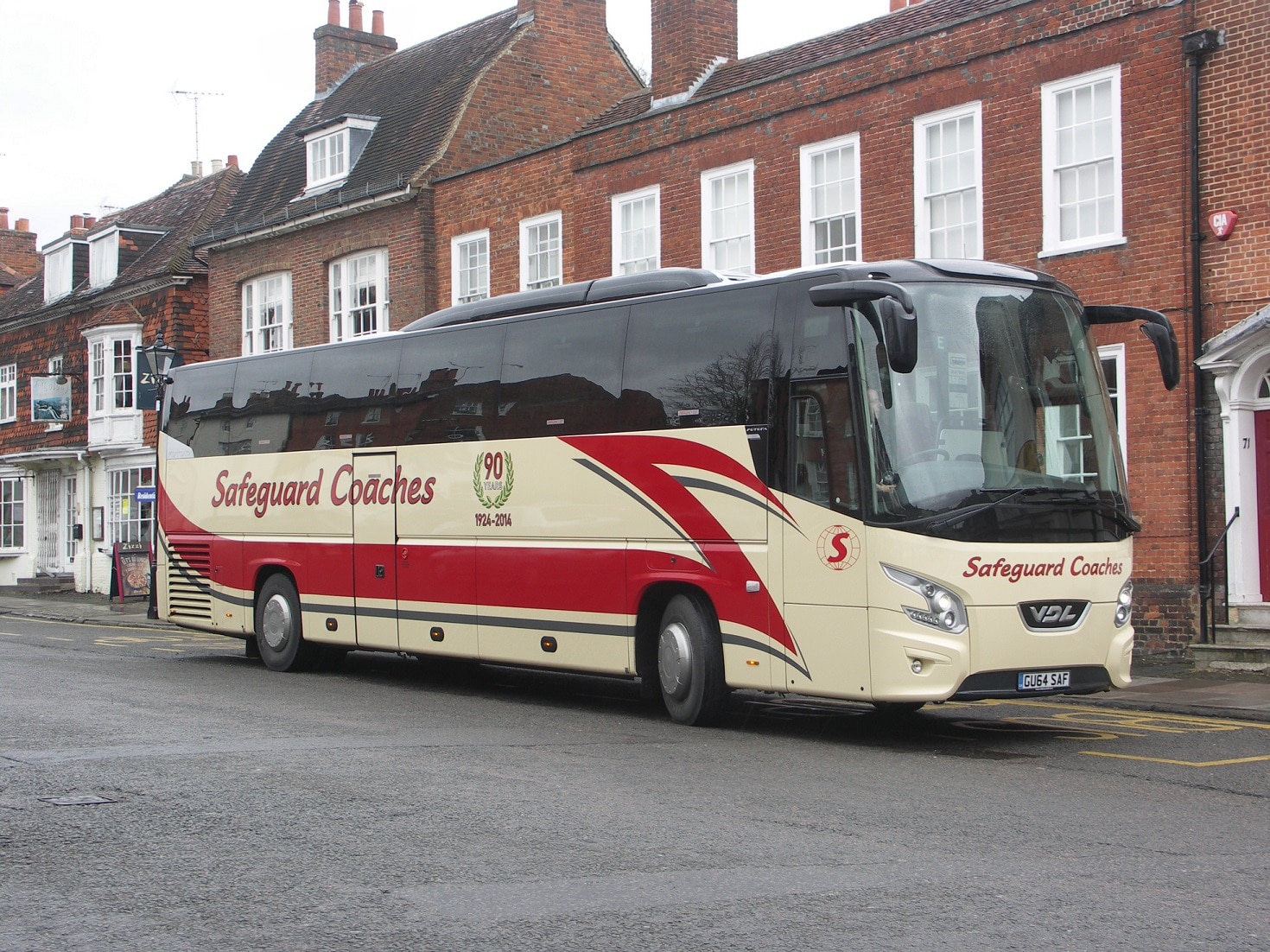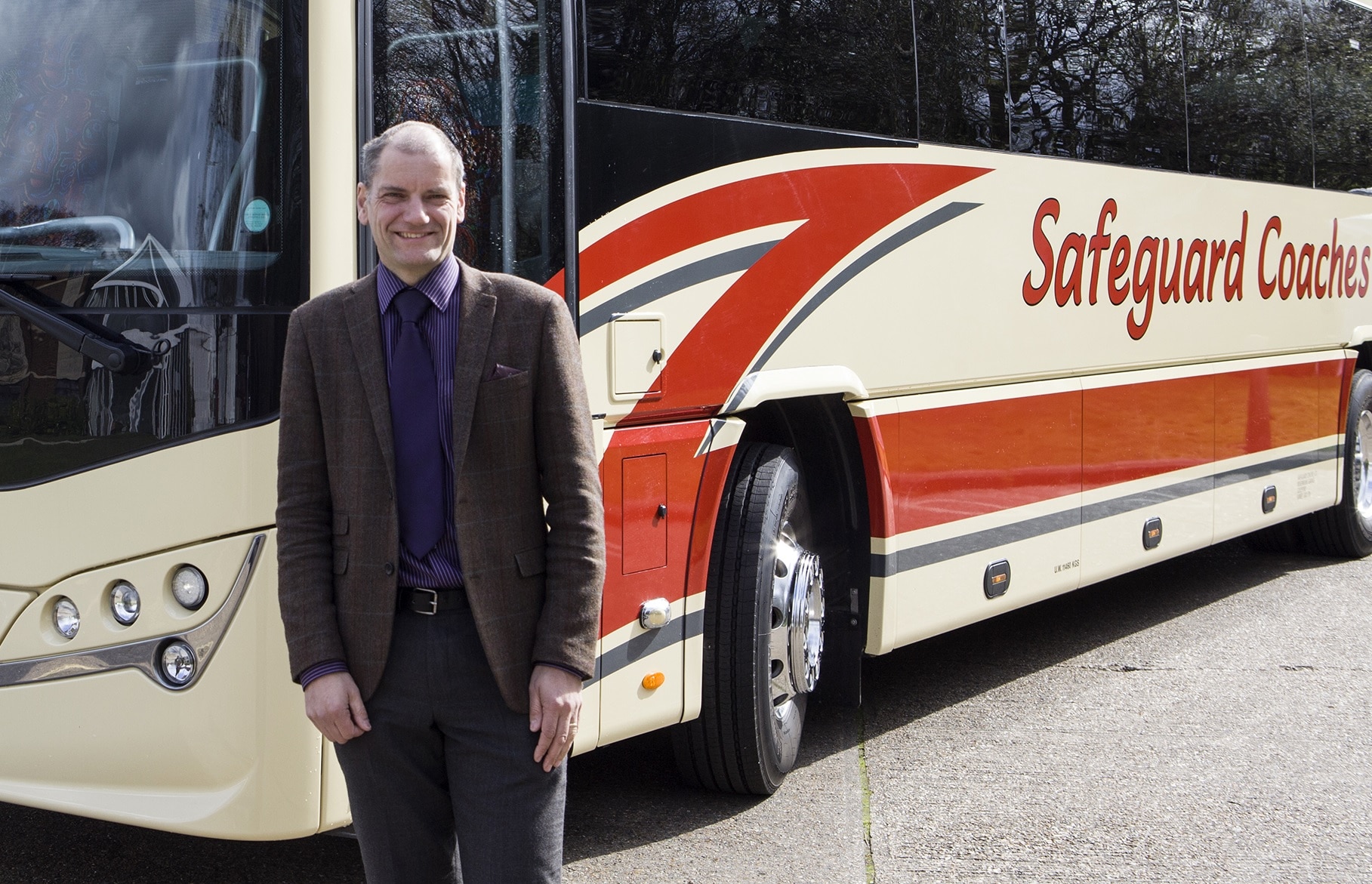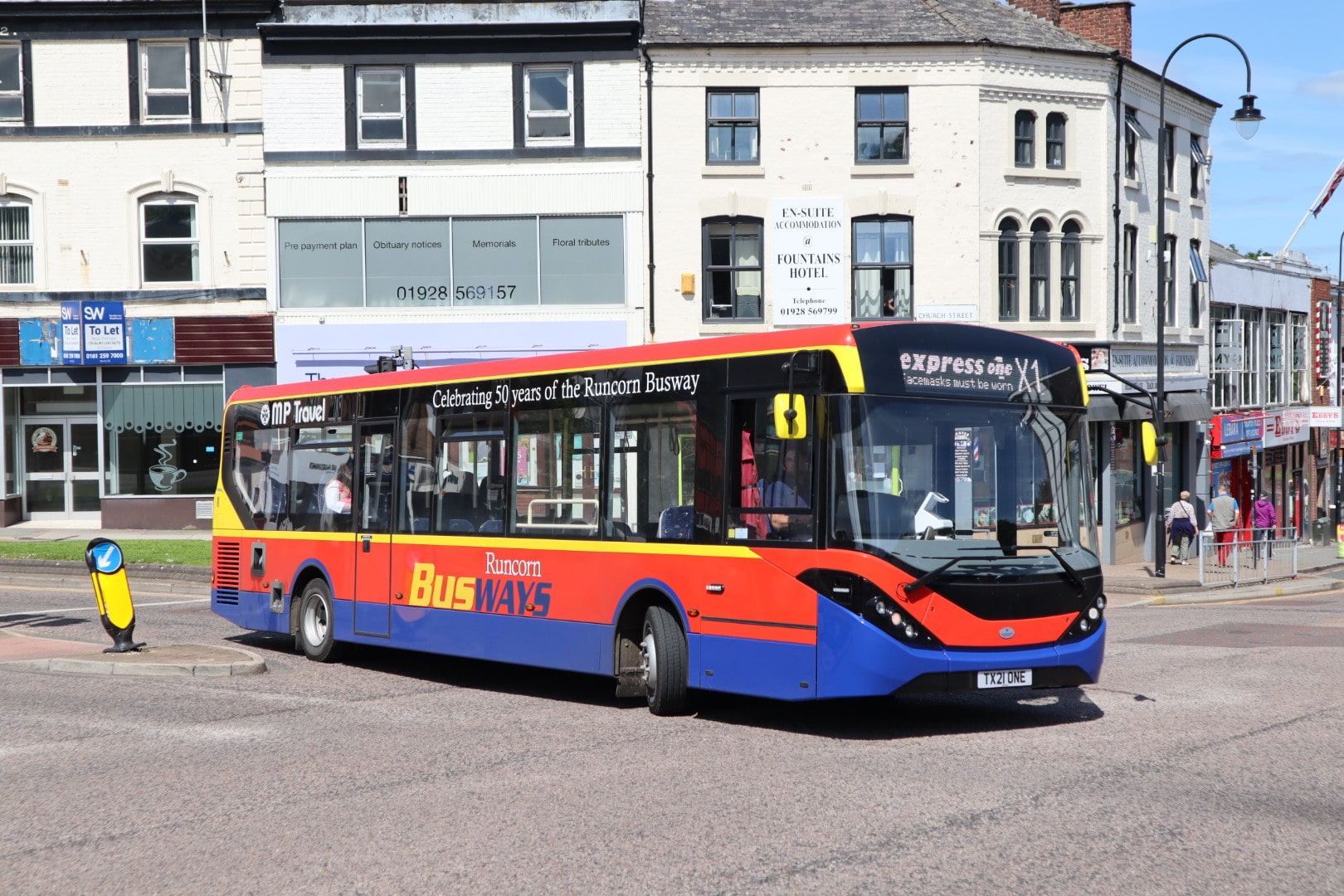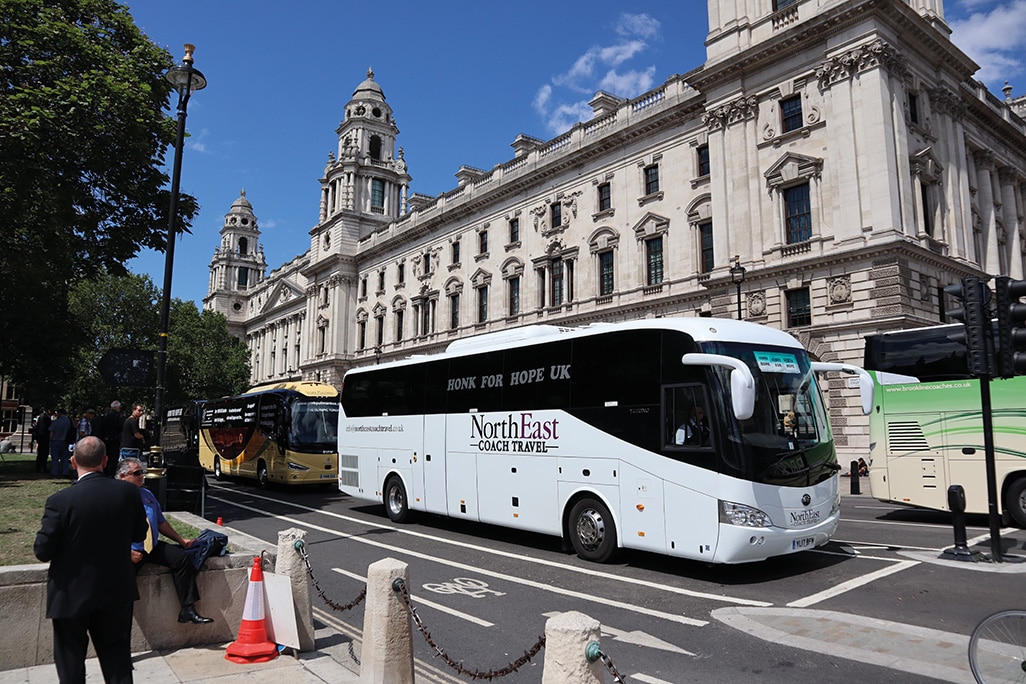Andrew Halliday, Managing Director of Safeguard Coaches, presents his opinions as a coach operator on the government’s latest missive on PSVAR in the sector
I write to express my great dismay at the content and tone of Under-Secretary of State for Transport Baroness Vere’s letter of 6 July to trade body leaders on the subject of PSVAR, especially in relation to home-to-school (H2S) services.
Lady Vere’s letter comes laden with much criticism of the coach industry and indicates that she and the Department for Transport (DfT) seem to have learnt nothing from their increased exposure to the sector through the pandemic and the tireless efforts of a number of advocates in bringing coach industry issues to her attention.
Her comment that the industry is trying to avoid its legal obligations is very wide of the mark and demonstrates her fundamental misunderstanding of the many practical issues surrounding the current PSVAR legislation. Her point that “21 years after PSVAR [was] introduced, it cannot be right that disabled people still cannot travel as easily or confidently as non-disabled people, or without incurring additional cost” is misleading.
DfT letter on PSVAR leads to ‘even more confusion’
Rather than providing a way forward (as many in the industry seem to be implying), her letter makes the situation even more confused on three counts:
- It is not known if it will be legal to fulfil H2S contracts for the full 2021-22 academic year with non-PSVAR vehicles as the exemption offered only lasts until March 2022, part way through the academic year, creating summer term uncertainty for operators and schools and colleges alike
- It is not known what the eligibility rules for further exemptions will be, as these “will be communicated in due course” with vague comments on PSVAR Schedule 3 and may only apply if an unspecified “minimum number of fully compliant vehicles” are operated. Operators cannot begin planning now (as the Baroness exhorts) if they do not know what the ground rules are
- Lady Vere’s letter suggests that all private hire coaches may in future be required to be wheelchair accessible. This seems unnecessarily challenging and costly when, by definition, the specific needs of users can be known and assessed in advance and could be catered for by a subset of wheelchair accessible vehicles in the coach operator’s fleet or by a specialist accessible coach provider.
The coach industry is not discriminatory, but it does need a practical and economically viable path to providing an appropriate degree of accessibility that balances a realistic assessment of need with the sector’s post-COVID-19 economics.
Rather than her current confrontational stance, the Baroness should seek to understand the issues and reasons why every H2S coach is not already PSVAR compliant and how, over time, progress can be made towards improving accessibility for a wider range of the industry’s customers.
Wider concerns not addressed by Regulations
The fundamental issues are that the application of PSVAR legislation to anything other than scheduled services has been very unclear and is ill thought out and impractical. Many very real concerns with the current PSVAR proposals – which were surely not designed with H2S services in mind – have been aired and, particularly where coaches are retrofitted, include:
- The inability to deploy lifts at many H2S coach pick up/set down points unless the highway authority provides adequate hardstanding
- Extended running times due to time taken to deploy and use a wheelchair lift
- The difficulty and probable stigma felt by customers using an external lifting mechanism
- The loss of seating capacity – unlike a bus with tip-up positions, this is effectively a permanent loss of up to six seats
- Inability to carry more than one wheelchair user on a PSVAR compliant vehicle
- Loss of luggage space, and additional vehicle weight
- Additional lift maintenance and Lifting Operations and Lifting Equipment Regulations 1998 compliance
- Additional driver training in respect of lift operation
- Complete reluctance among cash-strapped schools to pay the additional charge needed to cover the extra costs of PSVAR compliance (new build or retrofit)
- The fact that on closed-door services, the specific needs of users are known and addressed in advance (unlike local bus or rail replacement services) and could be adequately serviced by a subset of the coach fleet
- Damaging effect on the residual values of non-PSVAR coaches.
All of the above issues will affect the economics and practicalities of the coach industry, which is reeling from the effects of the COVID-19 pandemic and which is also expected to invest to cope with London’s Ultra Low Emission Zone and many Clean Air Zones and Low Emission Zones across the nation. How does the Baroness expect coach companies to also invest in more expensive new or retrofitted PSVAR-enabled coaches?
Balancing act needed to find a solution
I understand that the Confederation of Passenger Transport (CPT) has proposed a way forwards (a paper to CPT Council dated March 2020 refers) that appears to balance the many different aspects of this increasingly difficult issue (including avoiding undermining those operators that have already invested in PSVAR compliant coaches or disadvantaging those customers that already benefit from their use).
I urge CPT, other trade bodies and manufacturers to unite and explain to the minister and DfT how the CPT approach would achieve a much better outcome for coach operators and a much larger number of existing and potential customers while, at the same time, providing practical accessible coach travel for those who need or would benefit from it.
In the meantime, instead of an endless string of exemptions that adds to the great uncertainty in the coach industry, the minister should immediately say that a PSVAR exemption will be permanently applied to existing vehicles (thereby protecting their residual values) and the PSVAR exemption for new vehicles used on H2S extended to a future date, perhaps March 2023, so as to allow a thorough review of the accessibility issue and give coach manufacturers time to design and obtain approval of practical and attractive accessibility solutions.

Of course, operators would be at liberty to convert existing vehicles to achieve PSVAR compliance if there was a business case for doing that work.
Perhaps in lieu of any other sector-specific support during the pandemic, DfT would be willing to offer funding for coach accessibility improvements such that accessible coaches are no more expensive than the current non-PSVAR versions?
Non-confrontational approach required
In summary, I believe that trying to continue with the application of current PSVAR requirements to H2S services, and possibly extend their reach into more aspects of the coach industry – such as private hire – will result in the sector falling well short of its potential in terms of eventual accessibility.
It risks achieving a very suboptimal result that is neither practical nor viable for coach operators, nor attractive to customers. I believe that, given an appropriate timeframe and a non-confrontational approach from the Baroness and DfT, manufacturers and operators will be able to achieve something far better for all stakeholders.
Surely we owe it to ourselves and our customers – current and future – to try?
Download Baroness Vere’s letter to trade bodies here.



























